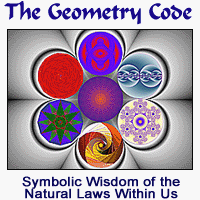Pick a Card, Any Card: Guestblog by Rob M. Miller
GUESTBLOG FEATURE

Sideshow: an Anthology of Freakish Horror—latest call for submissions from Netbound Publishing, guest-editor Rob M.Miller, artwork by Melissa Stevens
Pick a Card, Any Card
The title of this piece is pretty familiar. If we haven’t actually heard it in the course of being part of a card trick, we’ve seen the scenario play out on film, or as part of a live audience.

Guestblogger Rob M. Miller shows his cards, shares his mentors—©Wildcard Comics, 1990 (US), Cover art by Jackson Guice,
Color by Alfred Ramirez
I wouldn’t be surprised if they did.
In 2009, I remember watching Judd Apatow’s comedically-disguised drama “Funny People,” starring Adam Sandler, Seth Rogen, Aubrey Plaza, and an army of others, and just being in stitches with the hilarious dialogue. Then it hit. The characters, when not performing on stage, weren’t laughing. These comedians, most of whom are comedians in real life, were NOT laughing. Instead, they might simply say: “Yeah, that was funny.”
Is that true to life?
With many endeavors, I think it just might be. How does one keep the magic magical? And not just to the general audience, either. How does a practitioner, an artist, keep that magic real, and real to his fellow magicians?
I can’t give an answer.
But it must be difficult, at best. After all, once you’ve peeked behind the curtain and really seen what’s going on, once the gears are spotted and the machine is understood, how can you honestly say the magic’s still there?
And yet, with reading, it is!
For more than twelve years, I’ve been practicing the craft of laying down words, of transporting readers to other worlds, into other people’s shoes, other sexes, times, circumstances, and moral bents. For many years, I’ve also been editing: genre-fiction, and non-fiction. I’ve learned many of the tricks; have certainly learned the jargon. Reading a work, I can recognize foreshadowing, can tell when I’m being manipulated to hate or love a character, or in some way identify with them. There’s quick recognition, too, when a book has two lines of suspense, or three, five, eight, or even more (yeah, thank you, Mr. George R.R. Martin). These lines are put down to manage characters, yes, but they’re also there to keep me turning the page.
With mysteries, it’s a quick spot that I’m being grounded in time and place, and if not quite yet with character, then certainly with event. Something bad has happened; usually there’s a body; and now, despite red herrings and/or MacGuffins, a person or a team has to find the culprit(s).
With thrillers, of course, it’s almost a reversal. Bad things are going to happen, and some stalwart champion, jaded anti-hero, or assembled squad must stop the bad folks from pulling it off.
There are tropes and cliché-ish plots—is there a plot that isn’t cliché?—whole lines of dialogue, or plot-turns that I can just call, with both books and film, and more often than not, be right (and, man-oh-man, how family members get irritated with that). I’m a veritable spoiler machine.
I think most long-term story addicts usually are. And certainly writers. It’s almost a given. Perhaps it is a given.
But, thank God, boredom isn’t. Or disdain. Or vitriol. Yes, it happens. We experience these things, and we read about them, and have been rejected because of them. Whether it’s someone’s Twilight novels getting hammered by the real vampire-lovers, or all the writers who’ve been putting out erotica for years, aghast at the thought that there are apparently millions who mistakenly think E. L. James invented the form.
Quite the contrary. The best of us writers, including the many who’ve written tomes of how-tos, or who have taught the craft of storytelling, from Stephen King with his Danse Macabre and On Writing, or David Morrell’s Lessons From a Lifetime of Writing: A Novelist Looks at His Craft, the many works put out by Writer’s Digest Books, to the countless articles and essays put out by the mags: Writer’s Digest, The Writer, Poets & Writers, and more, have blown away the curtains, have reverse-engineered the machinery, laid out the schematics, spilled their guts (and those of others) on dialogue, characterization, description, the telling detail, the truth of weak words and power words, the hazards of adverbs, of too much of this, or too little of the other thing. Of a truth, every bit of nose-to-the-stone and shoulder-to-the-wheel has been committed to demystifying the writing and storytelling process.
And yet, all the books and seminars, workshops and boot camps, conventions and panels, all the teachers and texts and syllabi, to-do and must-never-do lists… despite all their individual and collective wondrous help, they have all—
—FAILED.
How?
Because the process is still mystical—still MAGICAL.
BOOYAH!
And why?
Because the magic’s real. It must be. What other explanation is there?
As unique as I am–and I am unique–I’m still only as unique as everyone else. And the magic still works on me.
Recently, after reading the third book in the A Song of Ice and Fire series by George R.R. Martin (yes, I’m mentioning him again), I shot to Facebook, and messaged the sadist who wrote A Storm of Swords:
The Red Wedding … thanks, Mr. Martin. I don’t know whether to pen a piece of hate mail or send the most fawning of fan letters. But of a truth, there’s no crueler set of gods, old or new, than that of authors.
I stand by the line. The novel hurt me. Beautifully written, yes—hadn’t expected anything less—but I lost some friends. And reading on in the series, I’m sure to lose more—and I got mad. Hell, I’m still upset.
Gary Braunbeck, a master writer who also teaches the craft, brought me to tears with his work Mr. Hands, a rare occurrence when I read spooky books.
Tom Piccirilli, with FICTION, gave me genuine willies with his work The Dead Letters.
Every so many years, I re-read Stephen R. Donaldson’s series The Chronicles of Thomas Covenant, and every time, I get mad NOT at the author (who’s really the one responsible), but at the character of Thomas Covenant, and all his doubting.
Annually, I read Morrell’s The Brotherhood of the Rose, and feel sorrow at the loss of Chris, with every reading, hoping in the back of my mind that perhaps this time, the man might be saved.

Post-apocalyptic horror fantasy, The Stand, (uncut hardcover, Doubleday 1990, 1152pp): King said exploding a bomb that killed half the cast was a device which saved the story
And let’s not even explore how I’m manipulated as a Bible-loving Christian. Thankfully, I’m un-churched, and don’t have to discuss why I cheer Dexter on, or think Hannibal the Cannibal is kinda cool … ’cause he only eats a-holes. Don’t have to worry about why I wouldn’t mind—if I had a cute puppy in hand—meeting Rex Miller’s Daniel Edward Flowers Bunkowski.
Humans, with their incredible science, can dissect a seed, identify all its parts, look upon it at the microscopic level, yet it cannot be put back together, planted, and be expected to produce anything living.
But with books, it happens. If not always, then often enough.
Stories live. Despite annotations and laborious page, scene and chapter breakdowns, they still manage to transport a reader. Even through multiple visits. And even with those who are in the know with the alchemy involved.
And they’re not always written by the greats, the successful, the famous. Sometimes the A-listers hit a foul or otherwise strike out. On websites like Short ’n Scary Stories, I’ve read incredible pieces by otherwise unpublished writers, even first-time writers. I’ve been moved by poetry in live crit-groups by people too scared to submit for general publication.
With all the rules, and more rules, and then even more, at best there’s only a general roadmap to pulling off the magic—and that’s being optimistic. There has to be a bit of knowledge, to be sure. But ultimately, this knowledge gets refined through a lot of failure, a lot of practice, and even then, for lack of a better word, there’s some extra-special something that’s present as well, some gift of Hermes that I can’t really define.
Proof?
Some pull it off with their first attempt, whether their fellow writers like it or not: first-time breakout authors with work blazing across the reading landscape, making the rest of us who have been toiling for years grind our teeth. It’s not fair, yet it is, the mixing of admiration, jealously, frustration, and anticipation… because now I’ve got to read the work, too. I have to see how the elements were so successfully mixed, if not with the writing, then with the story.With all I know, with all the secrets I’ve been exposed to: tricks, devices, paradigms, and sleight-of-hand, I can’t imagine ever becoming jaded. Oh, no. Instead, when it comes my turn to read, I’ll always remain a child, waiting for that rabbit to get pulled, my card to get picked. Even when I know the secret behind the act, for some still-mystical reason, I never get bored.
With comedians and magicians… with what they know, maybe they do.
Not with writers. Not when the work’s done well.
Because we love the magic.
We’re readers first and always.
And when we get together, you can tell. We’re always saying to one another: “Yeah, right, but have you read…?”
©2012 Rob M. Miller
Rob M. Miller, writer and editor, staunch supporter of his own inner child, lives in the Pacific Northwest, where he continues to enjoy reading and writing. His work can be found in various anthologies. Visit his site at http://www.jaggeddarkness.com. And while you’re there, be sure to sign his guest book, the Robonomicon. Thank you, Rob.
Marian Youngblood
August 2012
Happy Lughnasad-Lammas: high point of the farming year; written three years ago, but the timing is similar—except for 2012’s wet-wet-wet—
CROP CIRCLES AND ANCIENT LAMMASTIDE
A Crop Circle Reverie Ten Years On…
Crop circles are not new. The phenomenon is centuries-old, embedded in folklore in South Africa and China, achieving sparse comment from English academics in the 1600s; noted in police records and farming journals in 1890; by military and ‘classified’ sources through the 1950s and ’60s.
It was not until 1980, however, that the general populace began to notice them. Since 1990 size and intricacy have developed, mimicking computer fractals, fourth dimensional reality, esoterica known only to quantum physicists. Nearly 30 years after that Thatcherite time, discussion favours excitement over fear, anticipation rather than suppression, belief more than ridicule. The appearance of upwards of 10,000 reported ‘genuine’ crop circles in twenty-nine countries worldwide has brought the subject into the mainstream. It has become ‘cool’ to talk about what they might mean.
In the English countryside since 2005, designs have…
View original post 1,550 more words












